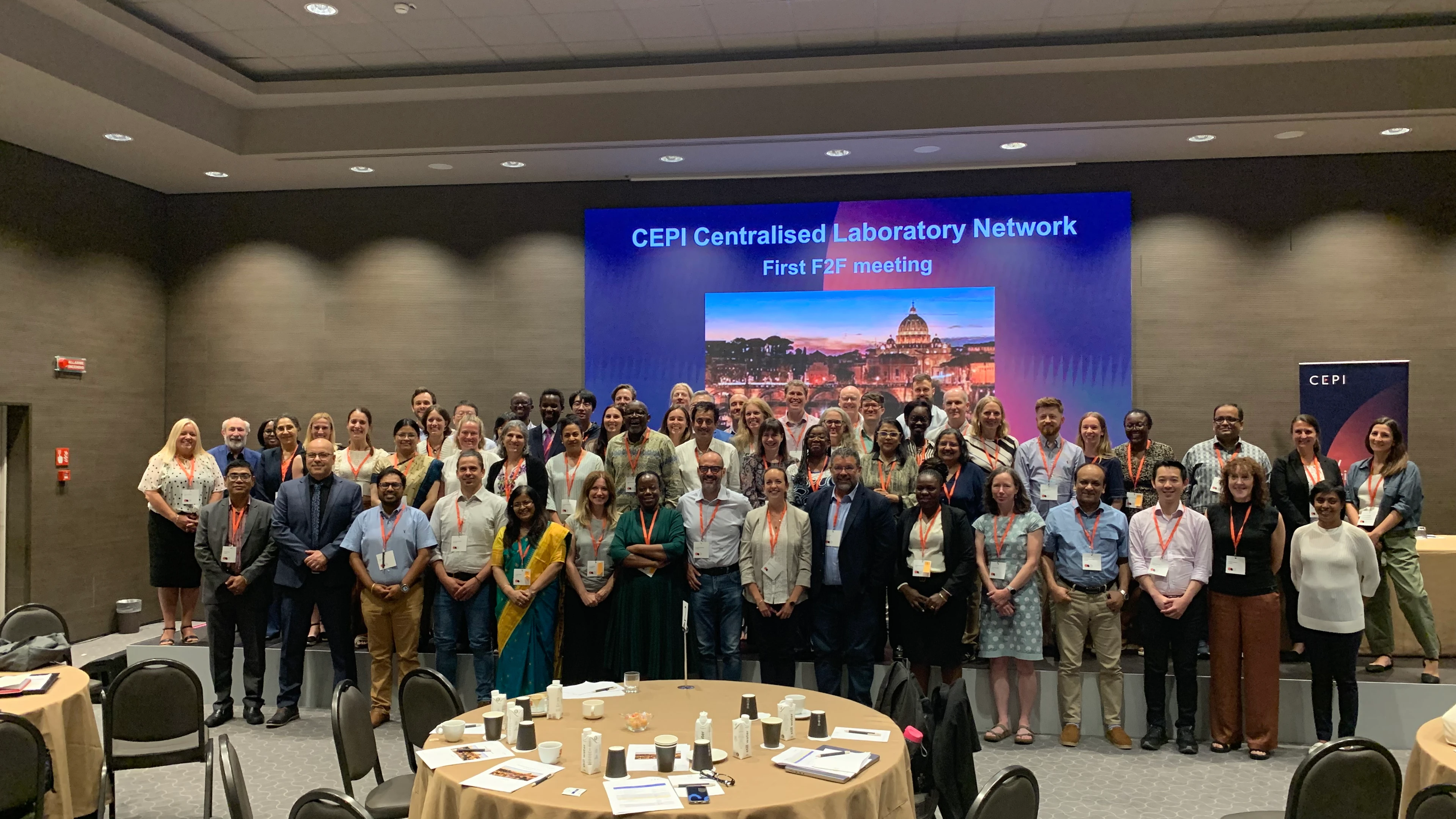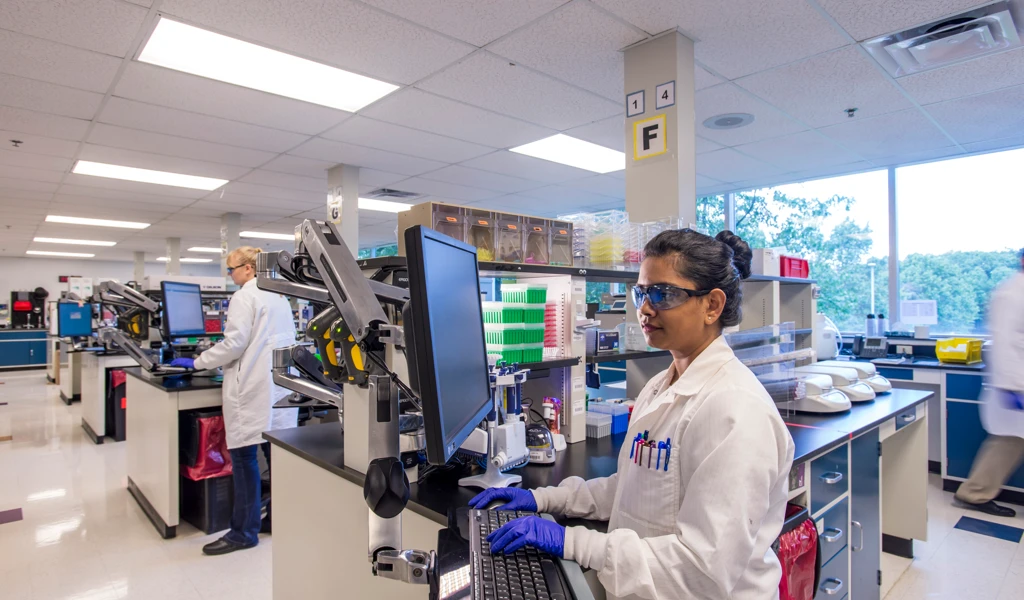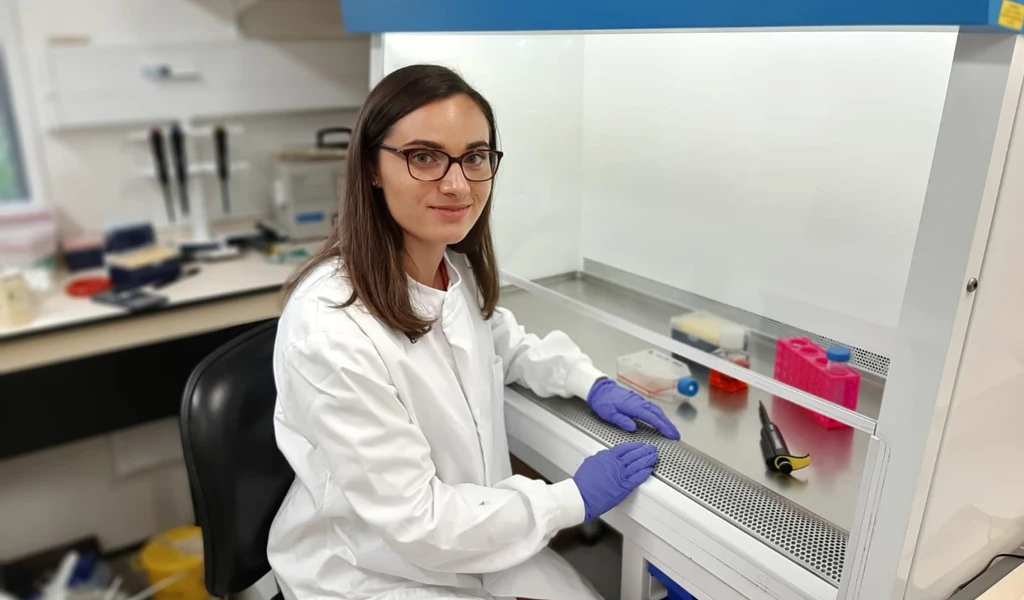Global vaccine standardisation group discuss progress in Rome

Amid the rapid global escalation of COVID-19 cases in 2020, scientists and vaccine regulators were faced with a problem. While hundreds of promising COVID-19 vaccine candidates to combat this new deadly virus were under development, they were being made using different techniques in separate laboratories, meaning that their performance could not be easily compared.
“For some COVID-19 vaccine candidates, different types of immune biomarkers, like antibodies and T-cells — crucial when evaluating the efficacy of a vaccine – were being used to measure vaccine performance” says Dr Valentina Bernasconi, Head of Laboratory Science at CEPI.
“There were also technical differences in how and where clinical trial samples were collected, transported, and stored, impacting the quality and usefulness of the data produced and making selection of the most effective vaccine candidates difficult”.
CEPI’s Centralised Lab Network opened in October 2020 to combat these challenges. At first, ten laboratories, globally spread across Bangladesh, Canada, US, Italy, India, the Netherlands, Mexico, China and the UK joined the network dedicated to using the same reagents - substances used to carry out a scientific test - and protocols to standardise assessment of vaccine candidates.
All COVID-19 vaccine developers – both CEPI-funded and non-CEPI-funded – had access to the network to uniformly analyse their samples from their preclinical and clinical COVID19 vaccine testing free of charge. This helped to minimise variations in results and expedite the development and regulatory approval of these much-needed vaccines.
Since then, CEPI has expanded the scale and geographical footprint of this network to become the largest global group using the same methods and materials to centralise and accelerate the evaluation of epidemic and pandemic vaccines. Laboratories in the network now cover Africa, Asia, Australia, Europe and North America.
Exchanging ideas
This month, the network came together for their first ever face-to-face meeting in Rome, Italy.
Over 60 delegates from 27 institutions worldwide attended the event to connect with other laboratory partners, exchange knowledge on the cutting-edge technologies that could be used by network members, discuss the network’s progresses and achievements and strengthen their preparedness and response capabilities.
Attendees included representatives from each of our laboratories as well as experts from global health organisations like World Health Organization, PATH, UNICEF, Gates Foundation, Pasteur Network, European and Developing Countries Clinical Trials Partnership, Nature Medicine and European Centre for Disease Prevention and Control.
Scientists at the meeting shared that more than 70,000 COVID-19 vaccine samples have been tested by the network in its four years of running supporting more than 60 vaccine developers worldwide. Given the success of its work on COVID-19, the network has recently expanded to focus on the assessment of vaccines being made against other deadly epidemic and pandemic viruses including high-risk pathogens prioritised by CEPI - Chikungunya, Lassa virus, MERS, Nipah, Rift Valley Fever – as well as worrisome threats like Ebola, Marburg and Mpox.
The meeting also served as an opportunity to plan for how the network can work collaboratively to further build workforce capacity and respond to future infectious disease outbreaks and meet CEPI’s ambitious target to develop new vaccines against novel threats, known as Disease X, in as little as 100 days.
By harmonising the analysis of vaccine candidates to facilitate faster data readouts and reducing sample shipping times due to its worldwide footprint, the Centralised Lab Network is a key enabler of this goal, known as the 100 Days Mission. It could help researchers and regulators to evaluate the most promising vaccine candidates quickly and accurately when faced with a future emerging infectious disease.
Growing the network
For CEPI, one aim is to continue to grow the network’s footprint so that all vaccine developers around the world have a nearby centralised laboratory network member available to them for standardised testing of their vaccine candidates.
“Vaccine developers around the world who are working on epidemic or pandemic infectious diseases must have the same level of scientific research and resource available to them to best prepare for future outbreaks” explains Dr Valentina Bernasconi.
“Having laboratories strategically located across different regions allows for faster response to emerging infectious diseases by reducing sample transfer and testing times to accelerate the development of vaccines against future outbreaks.”
“Vaccines are the most powerful tool in the fight against epidemics and pandemics and the development of standardised assays for the assessment of vaccine candidates is a crucial step on this path.”
CEPI has to date invested up to $42 million to support the running of the network.
Members of the network are selected though open calls based on their capacity, experience and expertise, the ability to work internationally to harmonise protocols and data and their record of receiving and handling samples from multiple geographical locations, among other criteria.



